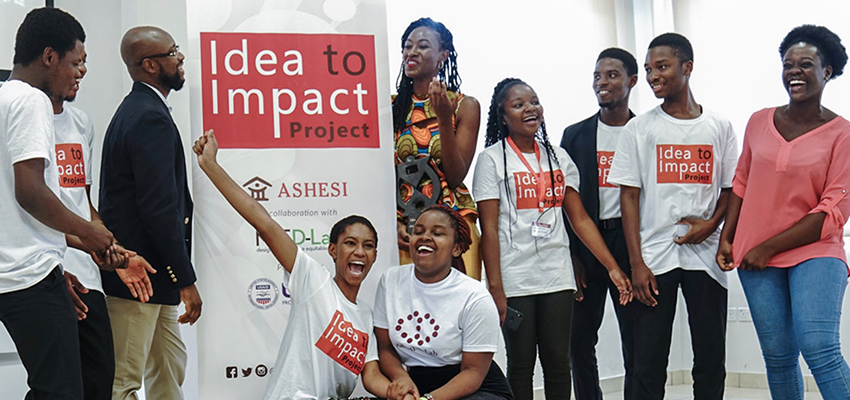
Ashesi and the MIT D-Lab announced the launch of the Idea to Impact project aimed at supporting the university’s entrepreneurial ecosystem.
Based on an article published by Ashesi University
Funded by the USAID, the collaboration, a three-year project, was formed out of a need to provide resources to upcoming student and alumni entrepreneurs whose business models are directly targeted at responding to the United Nation’s Sustainable Developmental goals.
“Businesses generally should be two things; profitable and sustainable, but we want to invite an additional metric, which is creating impact,” said Jewel Thompson, project lead and Foundations of Design and Entrepreneurship faculty at Ashesi. “The design of the incubator is unique, as it requires its fellows to commit to impactful and thoughtful research; the type that brings great connectivity to the person whose problem they wish to solve. We also understand the challenging context in which this project exists, it's difficult to thrive as a start-up in Ghana. This is why we have included an ecosystem so that entrepreneurs will have access to support that will increase their chances of survival and growth beyond 5 years.”
In addition to supporting businesses focused on the SDGs, the Idea to Impact project aims to introduce the lean research methodology to the Ashesi Community and train interested members on its use. This is also an effort to create businesses and also case studies for the greater academic and research community in Ghana and beyond. Additionally, the project aims at producing an annual convening that brings together key players within the Ghanaian entrepreneurial ecosystem to explore ways of promoting the SDGs in entrepreneurial models.
At the core of the project’s implementation is the use of lean research as medium to help entrepreneurs create sustainable and effective solutions for their users.
“By arming students and lecturers with our lean research methods, we hope to provide them with the strategies to conduct valuable, rigorous, respectful and relevant research,” shared Libby McDonald, lecturer and inclusive economies specialist at MIT D-Lab. “Already working with Ashesi students, we have sensed a courage and desire to work towards creating solutions to transform the continent, and we're excited to be part of this journey.”
Over the years, in line with its mission, Ashesi has built within its curriculum, programs and courses that expose students to entrepreneurship at various levels. Right off the bat, all freshmen take the Foundations of Design and Entrepreneurship course, a year-long class that exposes students to the nuances of identifying problems, solving them and also building business models around these problems. Additionally, as a capstone project, students get to choose an entrepreneurship track, that enables them to devote their final year to implementing entrepreneurship lessons into everyday problems.
“Throughout their time at Ashesi, and even beyond, our students are at the forefront of building solutions to problems within local societies and communities,” shared Dr. Gordon Admodza, Project Director and lead faculty of Foundations of Design and Entrepreneurship. “So if they're doing these things, already interacting with people with problems and creating solutions for them, the question is how can we help them become more successful? In terms of our mission to transform Africa, this partnership completes us in terms of helping our students exercise that courage really well.”
Annually out of the over 120,000 students who graduate from university in Ghana, only about 10% are successfully absorbed into the job market. In working to mitigate this gap, the Ghanaian government over the years has been exploring partnerships with institutions like Ashesi to provide entrepreneurship training. One of such initiatives is the National Entrepreneurship and Innovation Program (NEIP).
“The NEIP has been set up to help empower students and graduates to startup ventures,” said John Kumah, CEO of the NEIP. “Our goal is to help graduates depend more on themselves to create jobs rather than waiting to be employed. On behalf of the government, our outfit is very happy to provide the necessary support to make the program a success. This relationship will bring a lot of good opportunities and impact to our country and people."
Contact
Libby McDonald, Lecturer and Inclusive Economies Specialist

